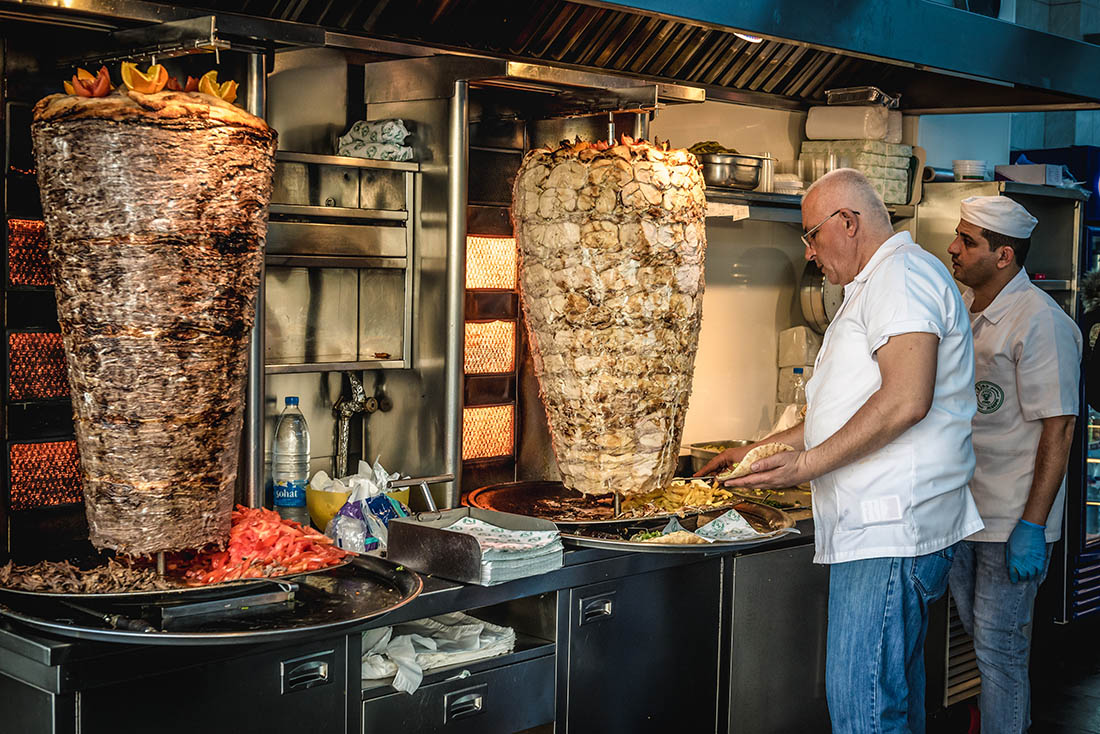Browse "Things"
-
Article
École Polytechnique Tragedy (Montreal Massacre)
On 6 December 1989, a man entered a mechanical engineering classroom at Montreal’s École Polytechnique armed with a semi-automatic weapon. After separating the women from the men, he opened fire on the women while screaming, “You are all feminists.” Fourteen young women were murdered, and 13 other people were wounded. The shooter then turned the gun on himself. In his suicide note, he blamed feminists for ruining his life. The note contained a list of 19 “radical feminists” who he said would have been killed had he not run out of time. It included the names of well-known women in Quebec, including journalists, television personalities and union leaders.
"https://d2ttikhf7xbzbs.cloudfront.net/media/media/e46a9a44-231e-4000-8a86-dae26e0d9a25.jpg" // resources/views/front/categories/view.blade.php
https://d2ttikhf7xbzbs.cloudfront.net/media/media/e46a9a44-231e-4000-8a86-dae26e0d9a25.jpg
-
Article
Pondweed
Pondweed is a common name for members of the family Potamogetonaceae [Gk potamos, "river"], which consists of the genus Potamogeton.
"https://development.thecanadianencyclopedia.ca/images/tce_placeholder.jpg?v=e9dca980c9bdb3aa11e832e7ea94f5d9" // resources/views/front/categories/view.blade.php
https://development.thecanadianencyclopedia.ca/images/tce_placeholder.jpg?v=e9dca980c9bdb3aa11e832e7ea94f5d9
-
Editorial
Pontiac's War
The following article is an editorial written by The Canadian Encyclopedia staff. Editorials are not usually updated. Pontiac's War was the most successful First Nations resistance to the European invasion in our history. Though it failed to oust the British from Indigenous lands, the conflict forced British authorities to a recognition of Indigenous rightsthat has had had far-reaching consequences down to our own time.
"https://development.thecanadianencyclopedia.ca/images/tce_placeholder.jpg?v=e9dca980c9bdb3aa11e832e7ea94f5d9" // resources/views/front/categories/view.blade.php
https://development.thecanadianencyclopedia.ca/images/tce_placeholder.jpg?v=e9dca980c9bdb3aa11e832e7ea94f5d9
-
Macleans
Pool Gets Respect
Just a couple of decades ago, Donna Sasgess favorite pastime would have been the object of raised eyebrows and disapproving glances. Even today, the 30-year-old Edmonton schoolteacher says, "some people think its kind of shocking.This article was originally published in Maclean's Magazine on April 24, 1995
"https://development.thecanadianencyclopedia.ca/images/tce_placeholder.jpg?v=e9dca980c9bdb3aa11e832e7ea94f5d9" // resources/views/front/categories/view.blade.php
https://development.thecanadianencyclopedia.ca/images/tce_placeholder.jpg?v=e9dca980c9bdb3aa11e832e7ea94f5d9
-
Article
Poplar
The poplar is a short-lived, deciduous, hardwood tree of genus Populus of the willow family, widely distributed in the northern temperate zone.
"https://d2ttikhf7xbzbs.cloudfront.net/media/media/62bf6280-e044-4789-abc5-84a773ec839d.jpg" // resources/views/front/categories/view.blade.php
https://d2ttikhf7xbzbs.cloudfront.net/media/media/62bf6280-e044-4789-abc5-84a773ec839d.jpg
-
List
Popular Jewish Dishes in Canada
The roots of the Jewish community in Canada go back to 1760 when Jews began to settle in Canada after the British Conquest of New France. The community remained small until the 1880s when large numbers of Ashkenazi Jews left Eastern Europe and made Canada their new home. The next major cohort of Jewish immigration began in the late 1950s when Jews from Morocco settled in Quebec. Each of these communities brought food from their homelands with them to Canada. They changed the food landscape of cities across the country. Many of these dishes remain an important part of Canada’s culinary identity to this day. (See Jewish Food in Canada.)
"https://d2ttikhf7xbzbs.cloudfront.net/Jewish_dishes/challah.jpg" // resources/views/front/categories/view.blade.php
https://d2ttikhf7xbzbs.cloudfront.net/Jewish_dishes/challah.jpg
-
List
Popular Lebanese Dishes in Canada
Generations of Lebanese migrants have contributed to Canada’s culinary scene. With food being central to Lebanese culture, it’s only fitting that the majority of Canada’s imports from Lebanon are agri-food products.
"https://d2ttikhf7xbzbs.cloudfront.net/lebanese-dishes/shawarma.jpg" // resources/views/front/categories/view.blade.php
https://d2ttikhf7xbzbs.cloudfront.net/lebanese-dishes/shawarma.jpg
-
Article
Population of Canada
Canada’s recorded population history begins in the 16th century with the arrival of Europeans. Indigenous peoples were subsequently depopulated, due largely to epidemic disease. High rates of fertility and immigration caused the country’s overall population to grow rapidly until the mid-19th century, when it slowed slightly. Population growth continued to be slow through the First World War, Great Depression and Second World War. Following this period growth rates began to increase again. Today, Canada’s population growth is dependent on international migration. As of the 2021 census, Canada’s population was nearly 37 million (36,991,981).
"https://d2ttikhf7xbzbs.cloudfront.net/media/media/2c3a8635-2510-4bad-b39f-1027e90d7b17.jpg" // resources/views/front/categories/view.blade.php
https://d2ttikhf7xbzbs.cloudfront.net/media/media/2c3a8635-2510-4bad-b39f-1027e90d7b17.jpg
-
Article
Population Genetics
Population genetics is the area of genetics that studies the distribution of genes (the units of genetic inheritance) and genotypes (the genetic complement at one or more loci), and the mechanisms determining genetic variability within a population.
"https://development.thecanadianencyclopedia.ca/images/tce_placeholder.jpg?v=e9dca980c9bdb3aa11e832e7ea94f5d9" // resources/views/front/categories/view.blade.php
https://development.thecanadianencyclopedia.ca/images/tce_placeholder.jpg?v=e9dca980c9bdb3aa11e832e7ea94f5d9
-
Article
Populism in Canada
Populism is a political ideology or movement that champions the idea of “the people,” usually in opposition to an established elite. It is often considered a right-wing ideology, but there are left-wing populists as well. Populism has a long history in Canada and continues to be an important factor in Canadian political culture and public life. In Canada, there have been right-wing populist parties (e.g., Social Credit Party, Créditistes, Reform) and left-wing populist parties (e.g., United Farmers of Alberta, Co-operative Commonwealth Federation). Although populism can be difficult to define, all populists claim to speak on behalf of ordinary people who have been let down in some way by an elite establishment.
"https://d2ttikhf7xbzbs.cloudfront.net/media/media/54ccbe27-ab03-4b87-9aad-53191602fb20.jpg" // resources/views/front/categories/view.blade.php
https://d2ttikhf7xbzbs.cloudfront.net/media/media/54ccbe27-ab03-4b87-9aad-53191602fb20.jpg
-
Article
Porcupine
Of the world's 23 species, only the North American porcupine (Erethizon dorsatum) occurs in Canada, throughout mainland forests and thickets.
"https://d2ttikhf7xbzbs.cloudfront.net/media/media/da303a47-692f-4260-89fe-f673d4ec5385.jpg" // resources/views/front/categories/view.blade.php
https://d2ttikhf7xbzbs.cloudfront.net/media/media/da303a47-692f-4260-89fe-f673d4ec5385.jpg
-
Article
Pornography
Historically, pornography has been understood to be descriptions, in literature or in art, of the life and manners of prostitutes and their patrons. This is consistent with the origins of the word in Greek, the word porne meaning "harlot" and grapho meaning "to write.
"https://development.thecanadianencyclopedia.ca/images/tce_placeholder.jpg?v=e9dca980c9bdb3aa11e832e7ea94f5d9" // resources/views/front/categories/view.blade.php
https://development.thecanadianencyclopedia.ca/images/tce_placeholder.jpg?v=e9dca980c9bdb3aa11e832e7ea94f5d9
-
Article
Portuguese Music in Canada
Although some Newfoundland place-names bear witness to early visits and Spanish-Portuguese traditions have survived in a Montreal synagogue, the Portuguese community in Canada did not begin to grow until 1953 when immigrants, largely from Madeira, were sponsored by the Canadian government as agricultural workers in Ontario.
"https://development.thecanadianencyclopedia.ca/images/tce_placeholder.jpg?v=e9dca980c9bdb3aa11e832e7ea94f5d9" // resources/views/front/categories/view.blade.php
https://development.thecanadianencyclopedia.ca/images/tce_placeholder.jpg?v=e9dca980c9bdb3aa11e832e7ea94f5d9
-
Article
Post-Traumatic Stress Disorder (PTSD) in Canada
Post-traumatic stress disorder (PTSD) is a mental illness that affects individuals exposed to trauma (although not all people exposed to trauma develop PTSD). Studies suggest that over 70 per cent of Canadians have been exposed to at least one traumatic event in their lifetime, and that nearly 1 out of 10 Canadians may develop PTSD at some point in their lives. PTSD can affect adults and children and can appear months or even years after exposure to the trauma.
"https://d2ttikhf7xbzbs.cloudfront.net/media/media/18a0d81b-c5a9-4ab5-811f-3f413a2d646b.jpg" // resources/views/front/categories/view.blade.php
https://d2ttikhf7xbzbs.cloudfront.net/media/media/18a0d81b-c5a9-4ab5-811f-3f413a2d646b.jpg
-
Macleans
Postal Strike Ends
At Golfinn Internationals offices in Brampton, Ont., Dave Finn is busily scratching numbers on a notepad, trying to arrive at some reasonably accurate estimate of the damage.This article was originally published in Maclean's Magazine on December 15, 1997
"https://development.thecanadianencyclopedia.ca/images/tce_placeholder.jpg?v=e9dca980c9bdb3aa11e832e7ea94f5d9" // resources/views/front/categories/view.blade.php
https://development.thecanadianencyclopedia.ca/images/tce_placeholder.jpg?v=e9dca980c9bdb3aa11e832e7ea94f5d9
